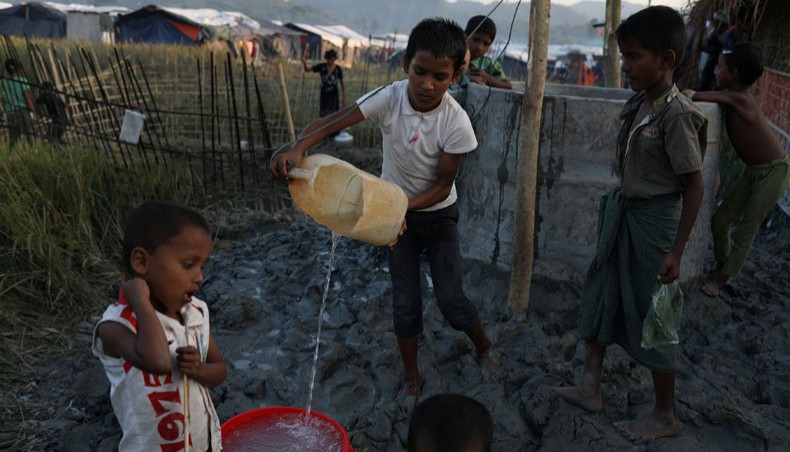Pope can help but Rohingyas ‘have to go back’: Cardinal
The top Catholic official in Bangladesh hopes Pope Francis's visit there and to Myanmar will bolster moves to alleviate the Rohingya refugee crisis that has put the neighbouring nations in the global spotlight.
Despite last week's deal to return to Myanmar some of the hundreds of thousands of people housed in the world's largest refugee camp, on the Bangladesh side of the border, Cardinal Patrick D'Rozario warns that the situation remains both explosive and tough to resolve.
‘I am hopeful the Rohingya can be returned to Myanmar,’ D'Rozario, the Archbishop of Dhaka, told AFP in an interview ahead of Francis's visit.
‘The international community wants it and the Holy Father's visit will prepare the minds and hearts of many,’ he said.
The UN's refugee agency has said the conditions for a safe return of Rohingya to Myanmar's Rakhine state are not in place and Bangladesh indicated Saturday that the plan was for them to be housed in temporary shelters initially.
Despite the difficult backdrop, D'Rozario is looking forward to the visit of the pontiff who made him a cardinal in 2016, in a first for Bangladesh and its tiny community of 360,000 Catholics.
Francis arrives in Myanmar on Monday and will fly Thursday to Bangladesh. His schedule does not include a visit to the vast refugee camp but he is due to meet with a small group of Rohingyas in Dhaka, the Bangladeshi capital.
‘The cries of the Rohingya are the cries of humanity,’ D'Rozario said. ‘These cries ought to be heard and addressed.’
The archbishop spent two days in the camp himself, speaking to families forced from their homes in Rakhine state by a campaign of orchestrated violence and intimidation condemned as ethnic cleansing by much of the international community.
‘The main thing is to tell the people 'We are on your side',’ he says, adding how he takes inspiration from Francis's oft-repeated description of the Church's role as being like that of a field hospital.
Caritas, the Church's humanitarian arm, is helping to feed 40,000 families in the refugee camp, an estimated total of around 300,000 people.
‘Can you imagine? A small church like ours! Working with the Rohingya and taking care of a third of the refugees... our little church!’
Despite his pride in the pivotal role Bangladesh's small Christian minority has been able to play in the crisis, the cardinal admits the outlook is not good.
‘I don't think Bangladesh can take care of the Rohingya in the long term,’ he said.
‘They have to go back but they will not go back unless there is certainty on their security, their citizenship, their right to land, right to shelter and also a mental security.
‘The international response for relief has been satisfactory but how long will it last for? Generosity will not continue to flow as it did in the initial phase of the crisis.’
Overcrowded, impoverished Bangladesh deserves praise for its efforts to accommodate the refugees, D'Rozario added.
But inevitably there will be tensions because of the impact of the latest Rohingya influx on local tribal groups.
‘There are a lot of tensions, social tensions. Land is not available. It's a very densely populated country, physically they don't have any space.
‘I admire the local people (for their restraint), the population has more than doubled.
‘There are environmental issues with all the trees cut to make shelters. There will be landslides when there is big rain.
‘It is not possible for Bangladesh alone to tackle this. The future looks very bleak.’
News Courtesy: www.newagebd.net











